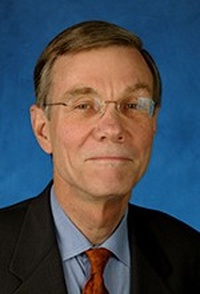ITL #103 All politics are local: gaining public support for age-friendly communities worldwide
9 years, 7 months ago
(Comments)
Harnessing ‘gray power’ by better serving the needs of an influential older population is becoming increasingly important. By Pender M. McCarter.
In Washington, DC, the United States capitol, we learn early on that all politics are local. U.S. politicians ignore this truism at their own risk if they don’t pay enough attention to home districts and local constituencies and interests. A recent example includes a member of the U.S. Congress who was voted out of office after being seen more with lobbyists in Washington steak houses than with constituents in his local Richmond, Virginia, office.
The phrase’s relevance was clear in 2013-2014 as I managed a project to help promote age-friendly practices among mature (age 55-plus) residents of Dupont Circle, a generally affluent, leafy neighborhood in northwest Washington, several blocks from the White House. I volunteered as one of 150 members of the Dupont Circle Village, a non-profit organization dedicated to enabling residents to contribute and remain independent in their homes and communities while they age.
Our Dupont Circle Village president, Iris Molotsky, retired as public-information director with the American Association of University Professors, challenged Village members to respond to demographic changes within the Dupont Circle neighborhood and to a city-wide initiative to make Washington age-friendly.
Ms. Molotsky cited the 55-plus age cohort as the fastest growing population group in the United States, and also with the largest disposable income. In addition, AARP, the organization that advocates for older Americans, urges advertisers to focus on the 76-million citizens born between 1946 and 1964, the "baby boomers," because "that’s where the money is." And, as the Dupont Circle Village president was quoted in a community newspaper in late 2013, "savvy merchants understand the value of adopting practices that will attract this growing 55-plus consumer base."
To introduce age-friendly practices to Dupont Circle stores and offices, the Dupont Circle Village partnered with the Historic Dupont Circle Main Street, a non-profit organization that focuses on attracting small independent businesses to Dupont Circle; the DC Age-Friendly Task Force; and the District’s AARP Office. The resulting effort has been lauded by the DC Age-Friendly Coordinator in the Office of the Deputy Mayor for Health and Human Services.
Concept incubators
The Dupont Circle program also serves as a template for other age-in-place villages in the United States to initiate similar programs. Ms. Molotsky told a Village-to-Village annual meeting in Washington in September 2014 that "communities increasingly recognize the importance of addressing our growing population cohort, and villages are ideally positioned to serve as incubators for new concepts, provide models and influence policy."
Again, all politics are local.
By partnering with the DC Age-Friendly Task Force, the Village supported the capitol city’s plans to participate in the World Health Organization (WHO) Global Network of Age-Friendly Cities and Communities. The UN-related project recognizes age-friendly practices in more than 1,000 municipalities worldwide.
These cities and communities are exercising "gray power" to address the needs of aging populations in eight areas identified by the Geneva-based WHO: housing, transportation, outdoor spaces/buildings, social participation, respect/social inclusion, civic participation/employment, communication/information, and community support/health services. The DC Age-Friendly Task Force added two domains: emergency preparedness/resilience; and elder care/neglect/fraud.
Over a two-year period, the DC Age-Friendly Task Force met with and surveyed hundreds of stakeholders and citizens before submitting a list of recommendations to the Mayor in September 2014 broadly covering public space, housing and transportation. These recommendations will be expanded in a three-year strategic plan to guide DC government operations. In December 2014, the plan will be submitted to AARP and forwarded to WHO, with a final evaluation of progress to be completed in 2017.
Best practice checklist
The DC Age-Friendly Task Force, in conjunction with local businesses, developed a best-practices check list that focused on physical facility (creating a welcoming atmosphere); personnel (providing respectful and excellent customer service); products and services (attracting and serving age 50-plus customers); and print/web (providing easily accessible information).
Both the DC Age-Friendly Coordinator and state director of AARP Washington praised the Dupont Circle Village initiative for its contribution to city-wide and age-friendly cities project worldwide. A Dupont Circle Village survey of 150 Village members and volunteers and 120 Dupont Circle businesses in October and December 2013 showed agreement on ways to appeal to the 55-plus cohort – mostly with low-cost solutions – addressing noise, lighting, physical access and personnel training. Similarly, Washington residents surveyed by the District in all areas of the city supported greater access to businesses – through easier mobility and visual acuity.
Based on its member and business surveys, the Dupont Circle Village compiled "Strategies for Marketing to Aging Consumers," which addressed access, lighting, noise, personnel and marketing opportunities. Several of the Village’s recommended practices were included in the District’s list of recommendations.
Lifestyle similarities
Further, the Village has called on businesses to consider quiet hours and senior discounts that appeal to older customers. In addition, the Village surveys found that older members, including empty nesters and a large aging LGBT population, share a similar lifestyle with younger residents, including walking to local businesses and eating out at Dupont restaurants. This consensus, combined with merchants’ desires to serve the large influx of younger "creative class" residents to Washington, suggests that an age-friendly city can appeal to virtually all ages by promoting access, safety and engagement. In its February 2014 report on Age-Friendly Business Practices, the Dupont Circle Village noted: "We see a convergence of interests in collaborating with local Dupont merchants and reaching across generations to build a stronger community."
In September 2014, the Dupont Circle Village undertook evaluations of local businesses on age-friendly access, lighting, noise and personnel practices. Volunteers shopped anonymously at selected stores and reported on their findings.
From Dupont Circle in the U.S. capitol to the City of Washington and New York City, from Dublin to Quebec City and Dijon, from Costa Rica to Chile and Argentina – there’s an emerging consensus on how to address the needs of the world’s growing, resilient and influential older population.
To explore further:
1) Dupont Circle Village report on "Age-Friendly Business Practices: Findings, Conclusions, Recommendations, Resources," 12 February 2014, http://www.dupontcirclevillage.org
2) Age-Friendly Washington, DC Task Force, http://agefriendly.dc.gov/page/age-friendly-dc-task-force
3) WHO Network, http://www.who.int/ageing/age_friendly_cities_network/en/
Author’s details
Pender M. McCarter is a sole proprietor specializing in providing strategic public-relations counsel. McCarter retired in 2013 after a 45-year career in education, journalism and public relations – including more than 30 years with the IEEE, the world´s largest professional association for the advancement of technology. As public-relations director at IEEE-USA in Washington, he helped promote engineering awareness, technological literacy and engineering diversity. As an IPRA Board member, McCarter represented the organization at the United Nations in New York City and at UNESCO in Paris.

The Author
Pender M. McCarter
Pender M. McCarter is a sole proprietor specializing in providing strategic public-relations counsel. McCarter retired in 2013 after a 45-year career in education, journalism and public relations.
mail the authorvisit the author's website
Forward, Post, Comment | #IpraITL
We are keen for our IPRA Thought Leadership essays to stimulate debate. With that objective in mind, we encourage readers to participate in and facilitate discussion. Please forward essay links to your industry contacts, post them to blogs, websites and social networking sites and above all give us your feedback via forums such as IPRA’s LinkedIn group. A new ITL essay is published on the IPRA website every week. Prospective ITL essay contributors should send a short synopsis to IPRA head of editorial content Rob Gray emailShare on Twitter Share on Facebook


Comments